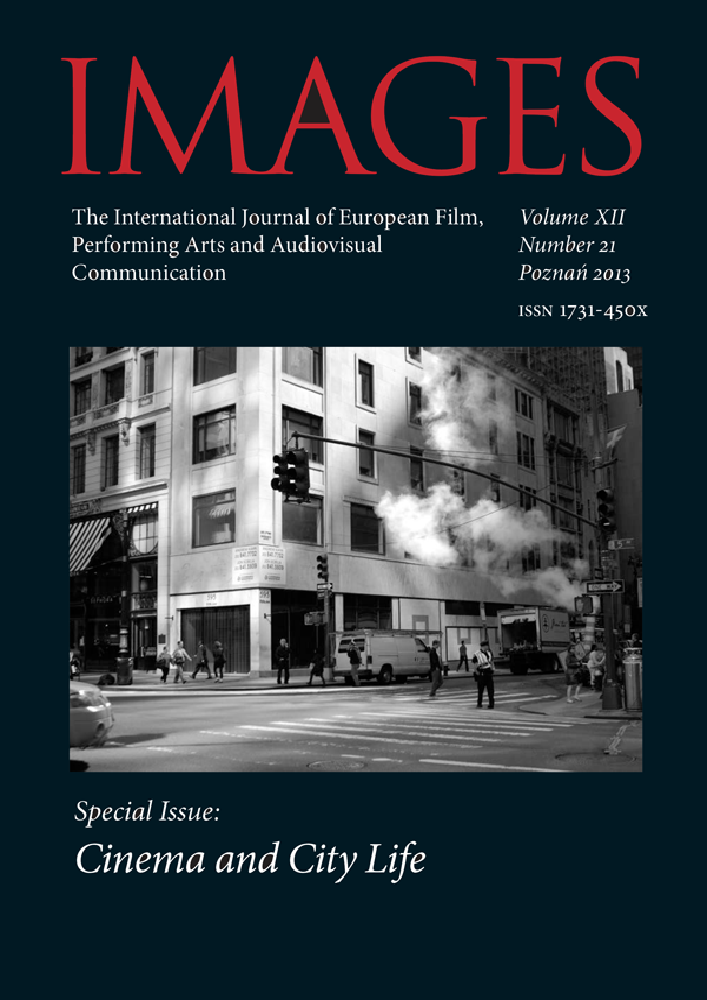Abstract
Dark memories in the provincial words of Ingmar Bergman's Fanny and Alexander and Federico Fellini's Amarcord
This article about Federico Fellini’s Amarcord (1973) and Ingmar Bergman’s Fanny and Alexander (1982) concerns one aspect of the directors’ childhood memories, namely how authoritarian institutions are used to disrupt otherwise fairly idyllic and nostalgic lives and worlds. The films blend detailed memories with playful fantasies, combine experiences of the directors’ alter egos, Titta and Alexander, with rituals of family and larger communities in the provincial cities of Rimini and Uppsala. In each film, bitter memories are given a central role. This article explores the similarities of these bitter memories, as they are imagined in the mature auteurs’ last exceptionally successful films.
References
J. Aghed, När Bergman går på bio, Sydsvenska dagbladet, 31 July 2007, <http://www.sydsvenskan.se/ kultur—nojen/nar-bergman-gar-pa-bio-1/> [accessed 31 May 2013].
F. Fellini, Fellini. Raccontando di me. Conversazioni con Costanzo Costantini, ed. C. Constantini, Editori Riuniti, Rome 1996, p. 225. See also, T. Kezich, Federico Fellini, la vita e i jilm, Feltrinelli, Milano 2007, p. 288.
T. Kezich, op. cit., p. 304.
P. Bon¬danella, The films of Federico Fellini, Cambridge University Press, Cambridge 2002, p. 129; and M. Koskinen, and M. Rohdin, Fanny och Alexander: Ur Ingmar Bergmans arkiv och hemliga gömmor, Wahlström & Widstrand, Stockholm 2005, p. 16.
I. Bergman, Images. My Life in film, trans. M. Ruuth, Arcade Publishing, London 1994, p. 366.
F. Fellini: Essays in Criticism, ed. P. Bondanella, Oxford University Press, Oxford 1978, pp. 261–288, pp. 284–285.
I. Bergman, Bilder, Norstedt, Stockholm 1990, p. 380.
F. Fellini, Fellini. Raccontando di me, op. cit., p. 14, 28.
I. Bergman, The Magic Lantern. An Autobiography, trans. J. Tate, H. Hamilton, London 1988, p. 20.
B. Steene,“‘Doing the alexander’: On Christmas motifs in Bergman’s Fanny and Alexander”, Journal of Scandinavian Cinema 2013, vol. 3, no. 3 [forthcoming)
I. Bergman, The Magic Lantern, op. cit., pp. 7–8.
F. Fellini, “Il fascismo dentro di noi, Intervista di Valerio Riva,” in: Il 3lm ‘Amarcord’ di Federico Fellini, ed. G. Angelucci and L. Betti, Cappelli, Bologna, 1974, p. 103.
D. Bonnigal, “Fellini’s Amarcord: Variations on the Libidinal Limbo of Adolescence,” in: Federico Fellini. Contemporary perspectives, ed. F. Burke and M.R.Waller, University of Toronto Press, Toronto 2002, pp. 137–154, p. 143.
E.Törnqvist, Filmdiktaren Ingmar Bergman, Arena, Malmö 1993, pp. 121–123.
License
Copyright
© by Adam Mickiewicz University, Poznań, 2013
OPEN ACCESS
